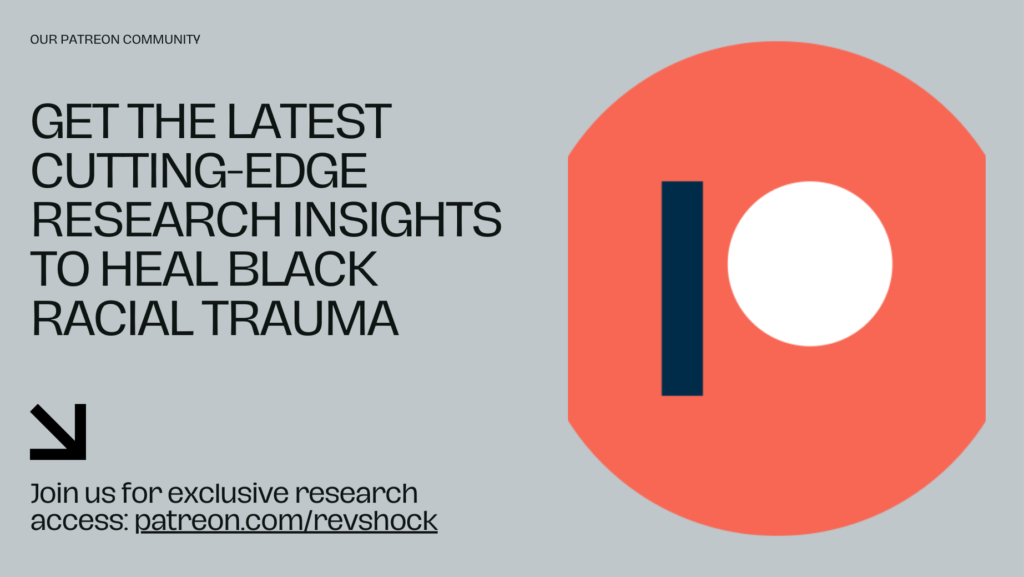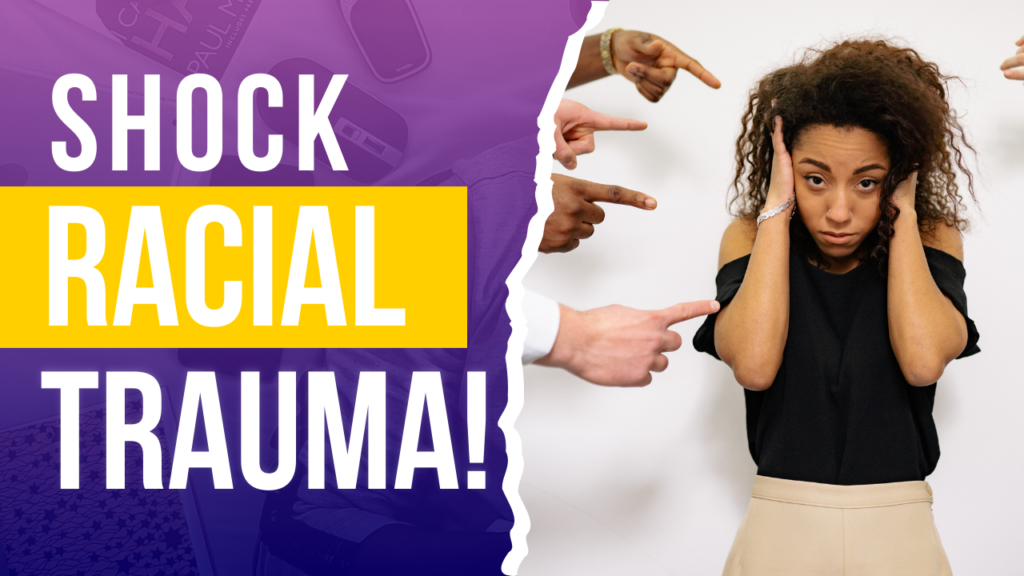
Powered By BlackTraumaGPT.com
Researched and Curated By Rev. Dr. Philippe SHOCK Matthews
(Black Trauma and Mental Health Specialist | Prompt Eng | GPT Dev | Research Scientist | Africana Phenomenologist | Black AI Corsortim co-Founder)
Medase Family,
Did you know that our trauma can be passed down through our genes? In this captivating five-part series, we’ll explore the four main types of genetic trauma: genetic, decontextualized, vicarious, and ghosting. Get ready to uncover the profound impact of these traumas and gain insights into how they shape our lives. Join me on this journey of self-discovery and healing. Let’s delve into the depths of our genetic memory together!
In this intricate weave of Black human existence, the threads of our ancestors’ experiences run deep, shaping not just the fabric of our individual identities, but also our collective consciousness. This profound connection between past and present is particularly resonant in the context of genetic and epigenetic trauma—a field of study revealing how the horrors endured by previous generations, especially within the Black diaspora, leave lasting imprints on their descendants.
The Concept of Ancestral Trauma
Ancestral trauma, also referred to as intergenerational or transgenerational trauma, posits that the unresolved emotional and psychological distress experienced by one generation can be transmitted to subsequent generations. This concept is not new; Indigenous cultures and various spiritual traditions have long recognized the continuity of trauma through familial and communal lines. However, modern science has begun to unravel the biological mechanisms underlying this phenomenon, particularly through the lens of epigenetics.
Epigenetics: The Science of Inherited Trauma
Epigenetics, the study of changes in gene expression that do not involve alterations to the underlying DNA sequence, offers a framework for understanding how environmental factors, including traumatic experiences, can affect gene activity. These changes can then be passed down to future generations, essentially embedding the echoes of trauma within our very biology.
Research spearheaded by scientists like Rachel Yehuda has demonstrated that trauma can induce epigenetic modifications that influence stress response systems. For instance, studies on Holocaust survivors and their descendants reveal altered cortisol levels—a hormone critical in the body’s stress response—suggesting that the physiological impact of trauma can be inherited. Similarly, African Americans, whose ancestors endured the brutality of slavery, segregation, and ongoing systemic racism, exhibit higher rates of stress-related disorders, which may also be traced to epigenetic modifications resulting from ancestral trauma.

The MAAFA: A Case Study in Ancestral Trauma
The MAAFA, a Kiswahili term meaning “great disaster,” refers to the transatlantic slave trade and the centuries of oppression and violence that followed. This period represents a cataclysmic rupture for African people, marked by unimaginable suffering and dehumanization. The MAAFA is a poignant example of how historical traumas continue to resonate within the Black community.
During the transatlantic slave trade, millions of Africans were forcibly uprooted from their homelands, subjected to the horrors of the Middle Passage, and sold into bondage. The survivors endured relentless physical, emotional, and psychological torment, often witnessing the brutalization and deaths of family members and compatriots. This collective trauma created a legacy of pain and resilience that has been transmitted across generations.
Epigenetic research supports the notion that the severe stress and trauma experienced by enslaved Africans have left biological markers on their descendants. These markers can manifest in various ways, including heightened stress responses, increased susceptibility to mental health disorders, and chronic health conditions such as hypertension and diabetes.
The Psychological and Cultural Dimensions of Ancestral Trauma
Beyond the biological transmission of trauma, the psychological and cultural dimensions play a crucial role in perpetuating ancestral wounds. Dr. Joy DeGruy’s concept of Post Traumatic Slave Syndrome (PTSS) explores how the multi-generational trauma of slavery affects the behaviors and beliefs of African Americans today. PTSS encompasses a range of adaptive and maladaptive behaviors, including internalized racism, self-esteem issues, and a pervasive sense of helplessness or hyper-vigilance.
Culturally, the narratives and memories of trauma are often passed down through oral traditions, stories, and practices. These cultural transmissions can either serve as sources of resilience and collective identity or reinforce cycles of trauma and victimhood. The dual nature of cultural inheritance highlights the importance of healing and reclaiming empowering narratives.
Healing Ancestral Trauma
Addressing and healing ancestral trauma requires a multi-faceted approach that encompasses individual, familial, and community dimensions. Here are some key strategies:
1. Awareness and Education: Understanding the concept of ancestral trauma and recognizing its manifestations is the first step toward healing. Education initiatives, both within and outside the Black community, can raise awareness and foster empathy.
2. Therapeutic Interventions: Therapeutic approaches such as trauma-focused cognitive-behavioral therapy (TF-CBT), narrative therapy, and somatic experiencing can help individuals process and heal from inherited trauma. Culturally competent therapists who understand the historical and cultural context of their clients’ experiences are particularly effective.
3. Cultural Reclamation and Empowerment: Reconnecting with cultural heritage, traditions, and practices can be a powerful source of healing. This includes embracing African spiritual practices, engaging in rituals that honor ancestors, and participating in community events that celebrate Black culture and resilience.
4. Community Support and Activism: Building strong, supportive communities that address systemic injustices and promote social justice is crucial. Community activism, mutual aid networks, and grassroots organizations play a vital role in fostering resilience and collective healing.
5. Epigenetic Research and Advocacy: Continued research into the epigenetic effects of trauma can inform public health strategies and policies. Advocating for research funding and the inclusion of Black voices in scientific discourse ensures that the unique experiences of the Black community are recognized and addressed.
Conclusion
The legacy of ancestral trauma is a testament to the enduring impact of historical injustices on the present and future. By exploring the genetic, epigenetic, psychological, and cultural dimensions of this phenomenon, we can gain a deeper understanding of the challenges faced by the Black community and the pathways to healing. Embracing a holistic approach that combines scientific research, cultural reclamation, and community support offers a way forward—honoring the past while empowering future generations to thrive. In this journey, the echoes of our ancestors’ resilience can serve as a guiding light, illuminating the path toward healing and liberation.
Brought To You By…
- [IMMEDIATE DOWNLOAD] Know Your Rights eBook by the Law Office of Keith J. Staten https://bit.ly/4bD3MbK
- Enhancing Cognitive Performance: The Power of Neuromelanin Boosters https://t.ly/S-ePs
- FREE web series: Nothing is Wrong with Black People…Something Happened to Black People: https://bit.ly/3FJCsLo
- BlackTraumaGPT http://blacktraumagpt.com/
- MyGuardianDoc™ https://bit.ly/3TlgPaE – Your One-Stop for On-Demand Compassionate Medical Guidance, Urgent Care, Primary Care, and Virtual Second Opinions, all provided by licensed Medical Doctors.
Enjoying Our Content?
Become a member of our Patreon to get the latest research on Racial Black Trauma and learn the hidden science behind why 1st Frequency Black people are God’s/Amma’s greatest creation! https://www.patreon.com/revshock. Or buy Rev. SHOCK a Coffee! https://bit.ly/3yg5D7A


Book A Discovery Call
Are you ready to SHOCKtrauma? Click HERE now to book a discovery call with Rev. Dr. Philippe SHOCK Matthews

Get Social with Doc SHOCK:
PATREON: https://t.ly/mjksf | REV. DR. SHOCK (PERPLEXITY PAGE): https://t.ly/ppjwh | SOLO: https://solo.to/revshock | BIO: https://t.ly/Ko_y_ | BLOG: https://t.ly/j6bh0 | PODCAST: https://t.ly/cB5GD | ENDORSEMENT: https://t.ly/jFErO | THREADS: https://t.ly/SoKkT | IG: https://t.ly/XsN8f | FB: https://t.ly/R3r9Y | X: https://t.ly/iJ-wy | LINKEDIN: https://t.ly/GZ0pe | TIKTOK: https://t.ly/zfp60 | BLACK TRAUMA GPT: https://t.ly/vswbs | BLACK AI CONSORTIUM: https://t.ly/uiRZN | BOOKS BY PM: https://t.ly/vvHMd
